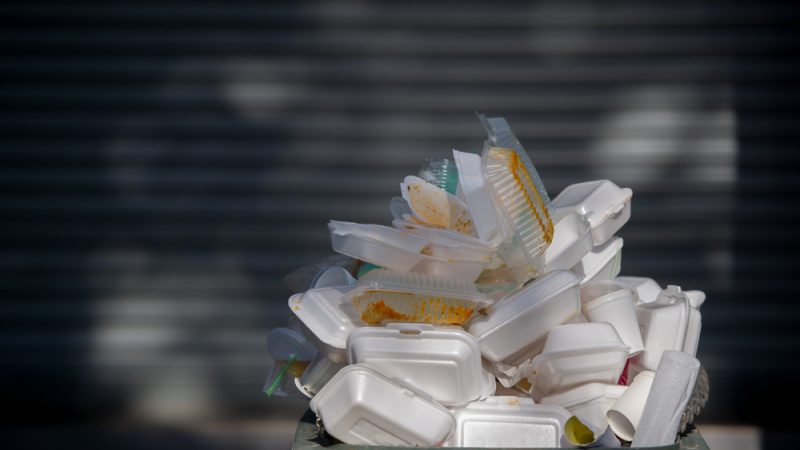Plastic waste management has become a challenge for our planet. Mankind produces 27.1 million tons per year of plastic waste and only 31.1% can be recycled! More than 65% are landfilled or incinerated. These huge amount of waste comes along with CO2 emissions of 6.7 million tons per year.
To counteract to these numbers, the project ENZYCLE was launched: it looks for new processes to treat and to recycle plastic fractions that nowadays cannot be recycled. It mainly addresses multilayer packaging, PET trays and clamshell containers and microplastics in waste water. Therefore, the project aims to reduce the amount of plastics that ends up in soil and the oceans.
This ambitious objective will be reached using microbial enzymes. Our ENZYCLE experts will select a set of appropriate enzymes that have the potential to degrade non-recycled plastic fractions. For this, the enzymes will be produced in a bioreactor through novel production processes and afterwards tested for their suitability in industrial applications.
The different plastic fractions
To be able to understand the technology, we have to clarify at first, how plastics are usually constituted. A lot of plastic products consist of a mixture of these compound classes below. The code (number in brackets) indicates the recycling category of a compound and is used for the labelling of materials:
- (01) PET (Poly-Ethylen-Terephtalate) is used for plastic bottles, packaging, foils.
- (02) PE-HD (High Density Poly Ethylene is found in cleaning agents, kitchenware and packaging.
- (03) PVC (PolyVinylChloride) belongs to the group of plasticizers which are used in floors, toys, tubes, seals etc.
- (04) PE-LD (Low Density Poly-Ethylene) is used in plastic bags, foils and tubes.
- (05) PP (Polypropylene) is known from food packaging such as yogurt cups and bags, but also industrial fibres and car bumpers.
- (06) PS (Polystyrene) or also known as Styrofoam is mainly used in packaging, insulating materials or food packaging.
- (07) All other plastic components such as polycarbonate (DVDs, CDs, resins), PMMA (Polymethylmethacrylat; Perspex, plexiglass, glass substitutes), ABS (Acrylnitril-Butadien-Styrol-Coploymer; toys, 3D printing), fibre glas (cars, planes, bathtub), biodegradable plastics
The project’s target fractions
The enzymes for the ENZYCLE approach will target the categories PET (01), PE (02 and 04) and PP (05). The enzymatic treatment will deliver new materials such as virgin PET, polyurethane foams or polyols, that could be reused in new products.
The idea is to decrease the amount of non-biodegradable polymers sent to disposal or even discharged to the environment. Furthermore, the costs of recycling plastic fractions will be reduced. ENZYCLE offers a chance for creating new markets, since the envisaged products and processes are applicable in packaging, transport, construction materials, textiles, etc. In addition, the project enlarges the range of feedstocks that can be effectively and sustainably processed through biocatalytic systems.
This project has received funding from the Bio-Based Industries Joint Undertaking under the European Union’s Horizon 2020 research and innovation programme under grant agreement No 887913.
Picture credits: Shutterstock
